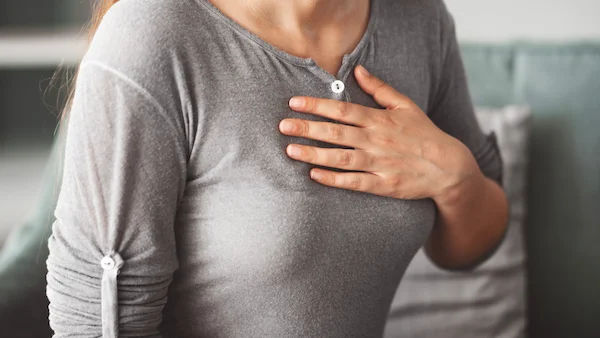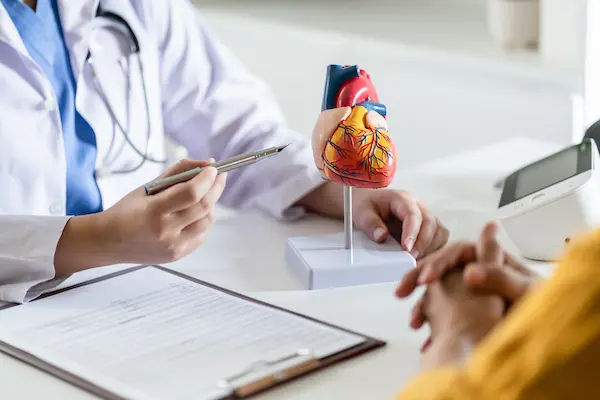- Male
- 25 Years
- 22/01/2025
I'm trying to understand something that's been bothering me. What's the difference between sinus tachycardia and arrhythmia? And does having sinus tachycardia mean I have an arrhythmia? I'm really anxious about this and would appreciate some clarity.
Answered by 1 Apollo Doctors
Sinus tachycardia is a type of arrhythmia, but not all arrhythmias are sinus tachycardia. Sinus tachycardia is a normal increase in heart rate in response to factors such as exercise, stress, or illness. It originates from the sinus node in the heart. On the other hand, arrhythmia is a broader term that encompasses any abnormality in the heart's rhythm. It includes conditions like atrial fibrillation, ventricular tachycardia, and others. If you have sinus tachycardia, it means your heart is beating faster than normal, but it is still following a regular pattern.
Dr. Chandra Suggests...
Consult a Cardiologist
Answered 04/07/2025
0
0

More Cardiology Health Queries
View allI'm really concerned about my heart health right now. My ejection factor is 38, and my doctor recommends I get an angiogram. But to be honest, I'm pretty scared about going through that procedure. Is there any other way to help improve my heart ejection factor? For context, I dont have any bad habits, weigh 68 kg, and am 6 feet tall. Any advice would really help me out.
Thats unusual,visit General Physician for appropriate approach.and maintain balanced diet and healthy lifestyle
Answered by 1 Apollo Doctors
I've been feeling this sharp pain around my heart and now it's getting really tough to breathe. What could be causing this, and should I be worried?
take tablet zerodol for 3 days
Answered by 1 Apollo Doctors
I'm experiencing this odd pressure on my chest, specifically on the left side where I've drawn a white line in the photo I sent. It's not quite pain, but more like an uncomfortable pressure. It tends to be noticeable when I lie down, which is pretty uncomfortable, but the pressure seems to go away when I'm up and walking around. There's no pain when I breathe or do exercises, which is confusing me. A few days ago, I was dealing with chest pain but it seems to have lessened. There's this constant pressure, though, especially when I'm lying down. Also, I had sinus tachycardia with a heart rate of 115 BPM during my first echocardiogram. The second one, however, was 77 BPM, and my blood pressure was 13383 mg. I'm wondering if all this is connected and if I should be worried about it?
It sounds like you may be experiencing musculoskeletal chest pain, possibly related to inflammation or strain in the chest wall muscles. The fact that the discomfort increases when lying down and improves with movement suggests a musculoskeletal origin. To help relieve the pressure and discomfort in your chest, you can try taking over-the-counter pain relievers such as acetaminophen (Tylenol) as needed. Additionally, applying a warm compress to the area may also help relax the muscles and alleviate the pressure sensation. If the symptoms persist or worsen, it would be advisable to consult with a healthcare professional for further evaluation and management.
Answered by 1 Apollo Doctors
Disclaimer: Answers on Apollo 247 are not intended to replace your doctor advice. Always seek help of a professional doctor in case of an medical emergency or ailment.



.webp)

